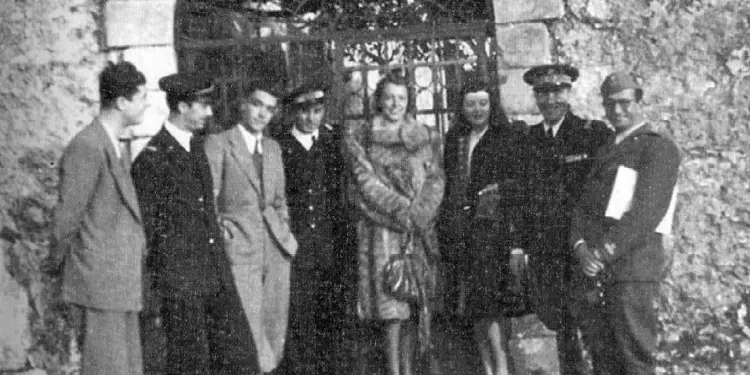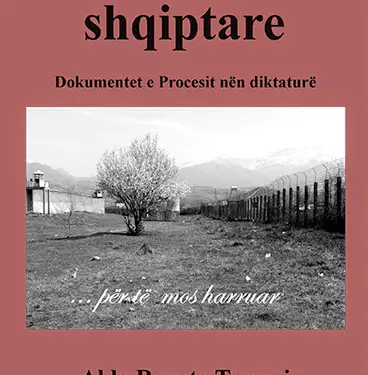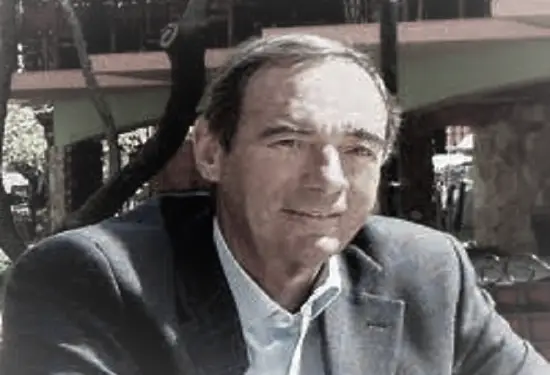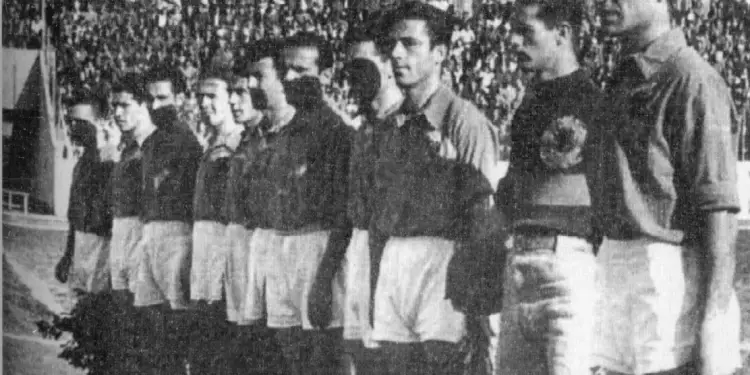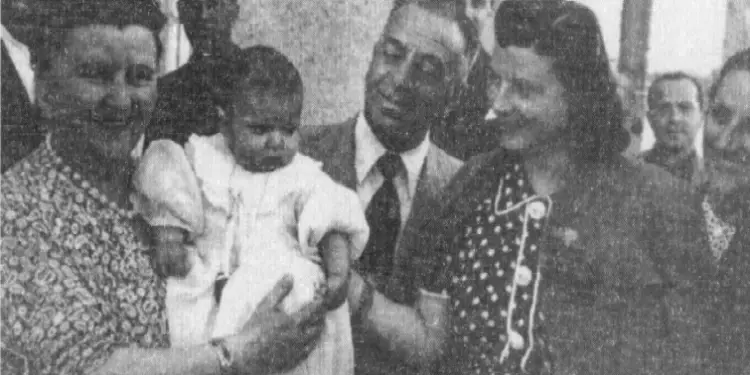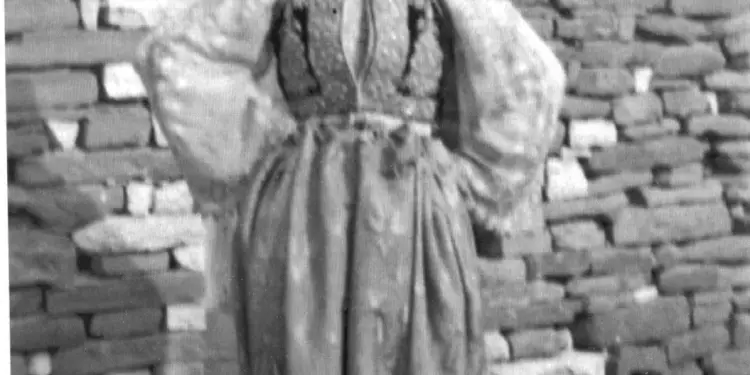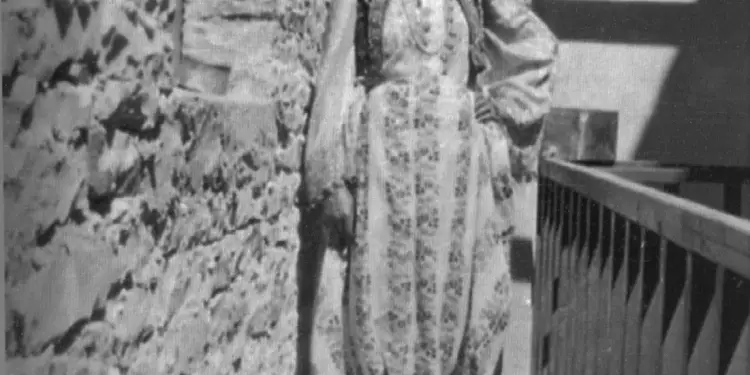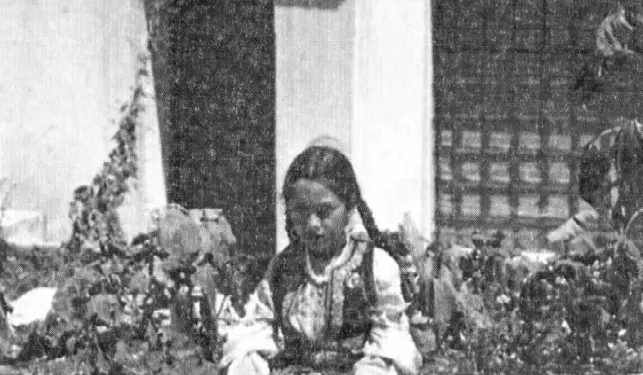By Aldo Renato Terrusi
The fifth part
Accueil
Memorie.al / Fiumicino Airport. Alitalia’s ‘MD 80’ plane is ready for flight. It’s Saturday, November 6, 1993. 11. 25 Am. The commander received approval. The flight attendants remind us once again to fasten the seat belt. The two engines are brought to maximum power, while the noise becomes muffled and deafening. Buttons and controls are tested for the last time according to flight procedures, the brakes are released, the faster and faster movement begins, the acceleration slams the passengers into the back, and the plane takes off. I feel an invisible force lifting me up that leaves me suspended in the void. I look around to see if the other passengers have the same feeling as me. Some read, some look out the window, some are indifferent, some barely sit still and some, frozen in their seats, let their fears show. With a wide change of direction, the plane rises in altitude and heads towards the radio beacon of Bari, then straight to Tirana, our destination.
After graduating in law in Bonn, he voluntarily enlisted in the 48th Infantry Regiment, completing his military service with the rank of lieutenant. In 1922 he found work in the regional ministry of State Property and Taxes in Taranto. In Castellaneta, he had a neighbor and friend, a fellow citizen destined to become famous, named Rodolfo Valentino. Their houses, or rather their parents’ houses, were opposite each other. With completely different characters, they had the common denominator of elegance in clothing and behavior.
Their last meeting, in 1924, took place precisely in Castellaneta in the bar in Piazza Umberto I, where both had made a habit of drinking coffee and lighting up from a Giuseppe, 5 years younger than Rodolfo, considered master of elegance and imitated his style. Rodolfo, who was used to joking, pointed out that Giuseppe already lived in a street, “Terruzi” Street, which had been named after him; while he, who lived in “Roma” Street and had some familiarity, would have to he waited a little longer before a street was named after him.
After two years, in 1926, came the news of Rodolfo’s sudden death in the United States of America. In 1929, Giuseppe, after winning the competition for a job in an important bank, ‘Credito Italiano’, started working in Bari, in 1931; he asked to be transferred abroad, where the profits were greater.
Thanks to his professionalism and especially his experience, also because he was not politically connected, they fulfilled his request and sent him to Albania, in the role of deputy director of the Gjirokastra branch. A handsome man, always elegant, tall, with a shining face, long brown hair, brown eyes, he was devoted to work and very demanding of himself, but at the same time, understanding with subordinates and big-hearted with others the weak. His qualities quickly aroused sympathy in the circle of Italians in Gjirokastra. He was also a very good bridge player, which didn’t hurt.
After the First World War, the creation of the Italian protectorate, with the will to maintain an independent Albanian state, had brought the Italians great advantages in terms of the political field (contrast of French aspirations in the Balkans), the military one (interruption of the continuity of the occupation of the Serbs and Greeks of the eastern coast of the Adriatic, plus the control of the Otranto Canal) and economic (taking into account the great transit value of the Albanian territory). Albania, in fact, had a strategic value for the Adriatic balance and constituted the main gateway for an economic expansion towards the East.
In 1925, the Albanian Republic was proclaimed with Ahmet Zogun at the head, who had pinned his hopes on the financial aid of the fascist regime, to strengthen his power in the country. The National Bank of Albania would be financed by Italy and would be managed by bodies-companies with an Italian majority. The administration of the institute was entrusted to Amedeo Gambino, who collaborated closely with the directors of the subsidiaries in Albania. The National Bank of Albania was founded in Rome on September 2, 1925. Although the status forced it to adapt to the gold exchange standard, from the beginning it began to operate with the gold standard, ensuring full conversion of its banknotes into gold. The Bank of Italy did not like this procedure very much, because the National Bank of Albania was simply its tentacle.
Fan Stilian Noli, the Albanian Orthodox priest who exercised strong political activity against the government, led the first Albanian democratic revolution, forcing Ahmet Zogu, then Prime Minister of Albania, to flee into exile and taking his place. A few months later, the revolution failed as a result of the old regime’s support of White Guard troops, located in neighboring Yugoslavia. Ahmeti entered the game again and in January 1925, he was elected president of the newly created Republic of Albania, by the General Assembly. Noli was forced into exile.
Zog’s government was inspired by European models, although much of Albania still had a social structure unchanged from the time of Ottoman rule and most of the villages were still ruled by beys. Although a Muslim, Zogu among other reforms, for example, banned the use of the penis for women and sanctioned cruelty to animals. Zog’s main ally during this period was Italy, which gave loans to his government in exchange for greater participation in the management of Albanian taxes. During his presidency, for the first time since Skanderbeg’s death, slavery slowly began to disappear and Albania began to rise more as a nation than as a feudal aggregate of provincial beys.
The growing power of Italy in Albania was visible to all, it guaranteed integrity and independence, in addition to great economic assistance.
Zogu, after establishing an alliance with the Government of Rome, was proclaimed King of the Albanians under the name Zogu I on September 1, 1928, establishing a Constitutional Monarchy similar to that of Italy at that time. He created a powerful police force, invented the “bird salute” (one’s right hands over the heart with the palm facing forward) and claimed to be a descendant of the national hero Gjergj Kastrioti Skënderbeu. Zogu I, ignored by other Kings of Europe, with the support of the Italian government, managed to accumulate a whole fortune in gold coins and precious stones, which he subsequently used to finance the first Albanian banknote.
Dissent reigned in Albania and several different factions opposed the government. Italy, like Europe, unfortunately, did nothing but ‘add fuel to the fire’. With the aim of guaranteeing the political and territorial independence of small and large states and following the territorial claims of the winning countries of the First World War, the League of Nations was also founded. For a moment, Italy controversially withdrew from the conference in protest at the missing territorial concessions in Yugoslavia, but later re-entered. The Italian press started talking about a ‘crippled victory’. The Treaty of Rapallo anyway put an end to the Italian issue of the Adriatic, assigning Dalmatia to Yugoslavia and declaring Fiume a free city. In the wave of popular discontent, Mussolini established the front lines of the war, paramilitary formations based on an anti-democratic ideology, which, although they highlighted heroic virtues, also glorified violence with the sole purpose of seizing power. Trade union movements were accompanied by riots in squares and shop raids.
After a year of violence and anarchy, in October 1922, the fascists marched on Rome. On October 28, the King appointed Mussolini prime minister, who was thus able to take extraordinary power to restore order. The government was formed by liberal and popular fascists. Thus was born Great Fascism, a commanding body, as well as the National Security Volunteer Militia, an armed force that did not swear allegiance to the King. Italian independence from Fiume was also recognized with the recognition of the Italian-Yugoslav agreement and the two nations signed a friendship pact at the same time.
But in Europe, storm clouds were appearing on the horizon. Lenin died and power in the USSR passed to Stalin. In Germany, Hitler began to organize the National Socialist party.
“Gentlemen, here is the coffee and the bill.
“Thank you”.
We ask if it is paid in Italian lira; the answer is yes, they get them, except for the metal coins, which can hardly be exchanged. We pay eleven lira and decide to tip them for their courtesy and leave two more thousand notes on the table.
“Okay, uncle, it’s past 3 in the afternoon. I say it’s good to go for a walk to digest the food.”
“Of course”.
We return to the main road and continue towards the old stadium. Not far away, a large crowd that has occupied almost the entire boulevard approaches us. We ask what is going on. For a moment we are confused.
“Uncle, is there any possibility that they have opened up and prepared a party for you”? I say jokingly.
“I believe”, he answers me.
Then we remember that it’s Sunday and realize that all those people have just left the stadium. Some eyes comment on the match loudly, there are others who make gestures, who laugh, who run, but the crowd is compact and passes us by without causing us problems. We look at each other and think that near any Italian stadium, we probably wouldn’t have had the same feelings. After the human river ended, we decided to go back and forth, without going to the stadium, we will come another day, it is late and it is starting to rain.
On the way back, we pass the hotel and continue towards “Skënderbej” Square. Bright and wonderful. Many young people meet under the hero’s monument and everywhere, up to the mosque, there is a crowd of people. We are very impressed by the characteristic prayer, which spreads everywhere from the height of the minaret. Dinner time has come, but we are not very hungry, since even lunch was quite heavy. After returning to “Dajti” we meet Spartak, who, as always very polite, asks us if we want to have dinner. We reply by saying that we would have liked more tea.
We take a seat in the living room and watch the TV, where a summary of a football match of the Italian championship is being shown; we take a sip of tea and some small cakes. Uncle, after hearing the Italian news and tired from the whole day, bids me good night. I stay for another ten minutes, then I go to my room.
AURELIA AND JOSEPH
The first rays of light appear between the cracks of the shutters, faint and muffled sounds come to my ears, but I can’t get up; I think it is still early and I lie lazily in bed. It is comfortable in the warmth of the beds. Today I find myself in the place where my parents knew all the possible good and bad during those 9 years living together during the Second World War. A mixture of feelings attacks me: pride, anger and a lot of longing.
From the family’s humorous accounts, I was familiar with some particular details of their history. I knew that Enveri used to go to Paris in Gjirokastër, while Aurelia and her parents often went to the circle of the Italian community. The town was getting more and more populated by the Italian expansion in Albania. Xhuzepe, in his position as deputy director of the only Italian bank in Gjirokastër, had become an important person for the community. Aurelia, twenty years old, was already old enough to be a man.
It didn’t take long for them to get to know each other and Giuseppe started to bring them around and go in and out of her family. After two years, he asked for her hand in marriage. For Aurelia, Giuseppe represented a reliable, down-to-earth and concrete man, friend, confidant and perhaps even father – they were 13 years apart in age. He was attracted to this graceful, strong and strong-willed woman, who enjoyed the status of a worthy friend to spend his life with. According to everyone who knew them, they made a beautiful couple. At the same time, Xhuzepe was appointed director of the National Bank of Albania in Saranda, a pleasant town in the south of the country.
The marriage took place in 1936 at the Italian Consulate in Saranda, according to the civil and religious ritual by Don Mario, who came all the way from Corfu. In addition to family members and colleagues of the bank, several dignitaries of the country also participated in the ceremony: the official representative of King Zog I, the Italian Consul in Vlorë, Salvoni and his wife, Gambino, delegated administrator of the National Bank of Albania, Melis, the director headquarters of the same bank, Lauricela, commander of the Italian military presence in Vlora, Rovigati, delegated administrator of the mines of Selenica and captain Ponte, of the fascist militia.
The newlyweds left for their honeymoon in Italy, made the itinerary of Venice, Trieste, Milan and Florence and stayed in famous hotels, such as “Danieli” in Venice and “Baglioni” in Florence. They went to the casino of Venice, to the Scala Theater in Milan, they were present at a performance of Aida in the Arena of Verona, and they stopped for a romantic moment under Juliet’s balcony. Aurelia bought many dresses in the best Milanese tailors and immediately sent them to Vlora. They admired the Dome of Turin, the Leaning Tower in Pisa, and the Old Bridge in Florence, visited the Church of St. Justus and the Miramare Castle in Trieste, then paid homage to the Military Mausoleum of Redipulia in Gorizia and went to the contested cities during the last war: Rivers and Chickens. In Turin, they ordered Fiat’s newest creation, the ‘Balilla 508’, which in 1932, Ducja himself had approved at Villa Torlonia in Rome.
They also hired servants: the Veneto sisters Anita and Bruna, in addition to Eugenia, who had previously worked in Albania at the Vlora Consulate – along with Alberto, her husband, who would serve as chauffeur, bodyguard and majordom. The couple’s days were intense and satisfying: Giuseppe, always attentive and loving, was rewarded by Aurelia with the same amount of love.
At the end of the long wedding trip and before returning to Vlora, they stopped in Puglia, in Castellaneta to meet Giuseppe’s sister, Kiara, with her husband Minkuço. The couple arrived at the venue after word of the fairytale wedding had spread and when they both arrived on Terruzi Street in the car they had hired in Brindisi – where they had arrived from Venice – friends and relatives were queuing up, throwing petals at each other white roses.
Very elegant, both of them, he in a gray double-breasted suit, she in a cream-colored silk dress that accentuated her harmonious forms and a large hat on her head, brought a special charm over the adoring and envious crowd that was gathered to greet them and celebrate with them. Congratulations, kisses and hugs between tears and smiles, while a mountain of luggage was unloaded from the car.
The newlyweds spent a few days in the bosom of the family and then met friends and acquaintances, casting a certain shadow of curiosity because of their refined behavior, unusual for a country especially inclined to agriculture and far from the worldliness of big centers. The stay in Kastelaneta was quite relaxing, the couple was invited to attend meetings with friends at their farms, they spent the evenings playing bridge, then they went to the Petruzzelli Theater in Bari, they also visited the arsenal of Iaranto thanks to a permit from the Consulate.
Leticia, Kiarine’s thirteen-year-old daughter, was fascinated by that beautiful and elegant woman and kept her memory for the rest of her life. After more than a month, Aurelia and Giuseppe’s journey ended. After greeting friends and relatives, they boarded Lloyd Adriatico’s ship to land in Durrës. Leticia, enthusiastic, insisted on definitely going with them to Albania, where she stayed for several months.
While Aurelia and Giuseppe were happily getting ready to start their life together, the fires of war were raging across Europe. In Italy, nationalists wanted to establish their hold on the Mediterranean area and North Africa, thus showing independence from fascism and the Western system. The ambitious goal was to expand the country’s model colonies (Libya, Somalk Entrea), to the size of a second Roman empire. In 1932, Mussolini began the plan to invade Ethiopia, claiming that Western forces would not intervene to help an African country that he considered unworthy of being included among civilized nations. Memorie.al




